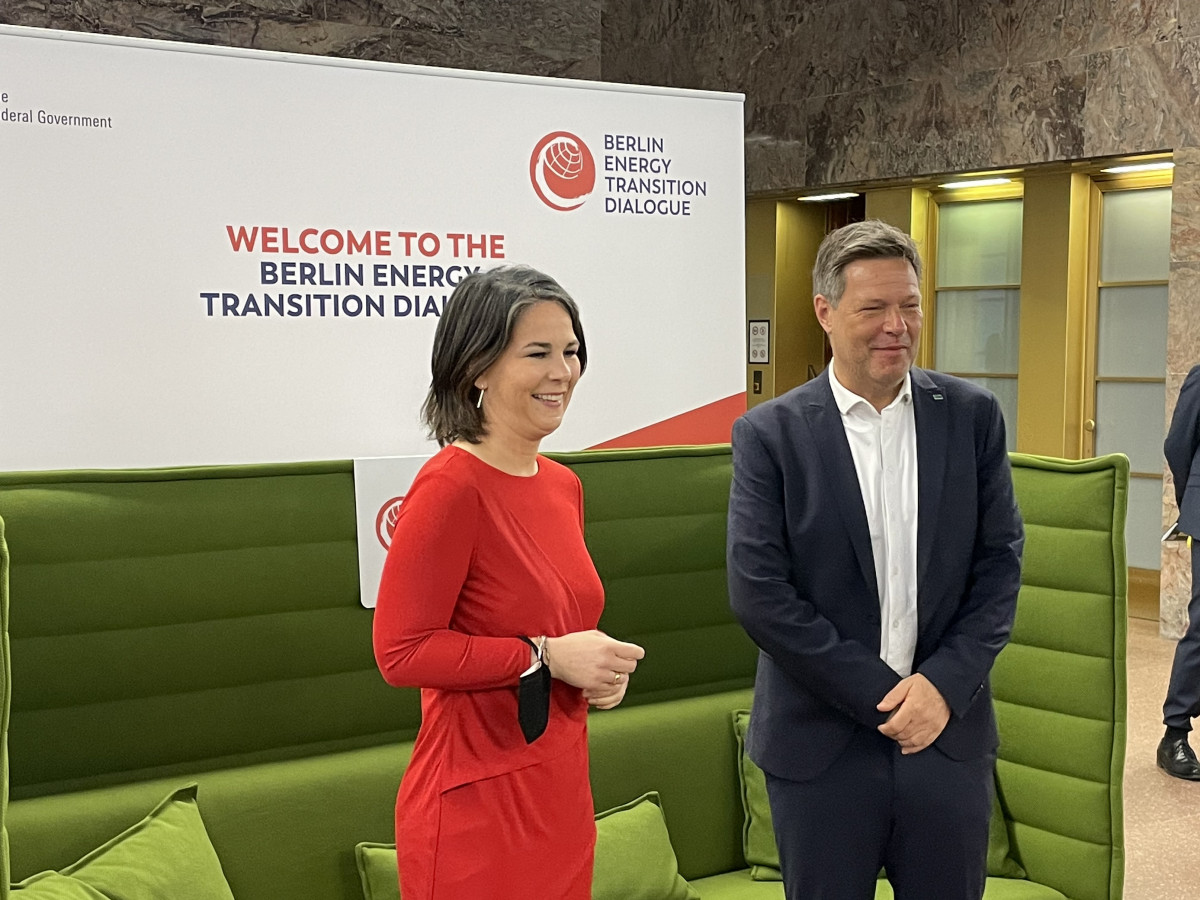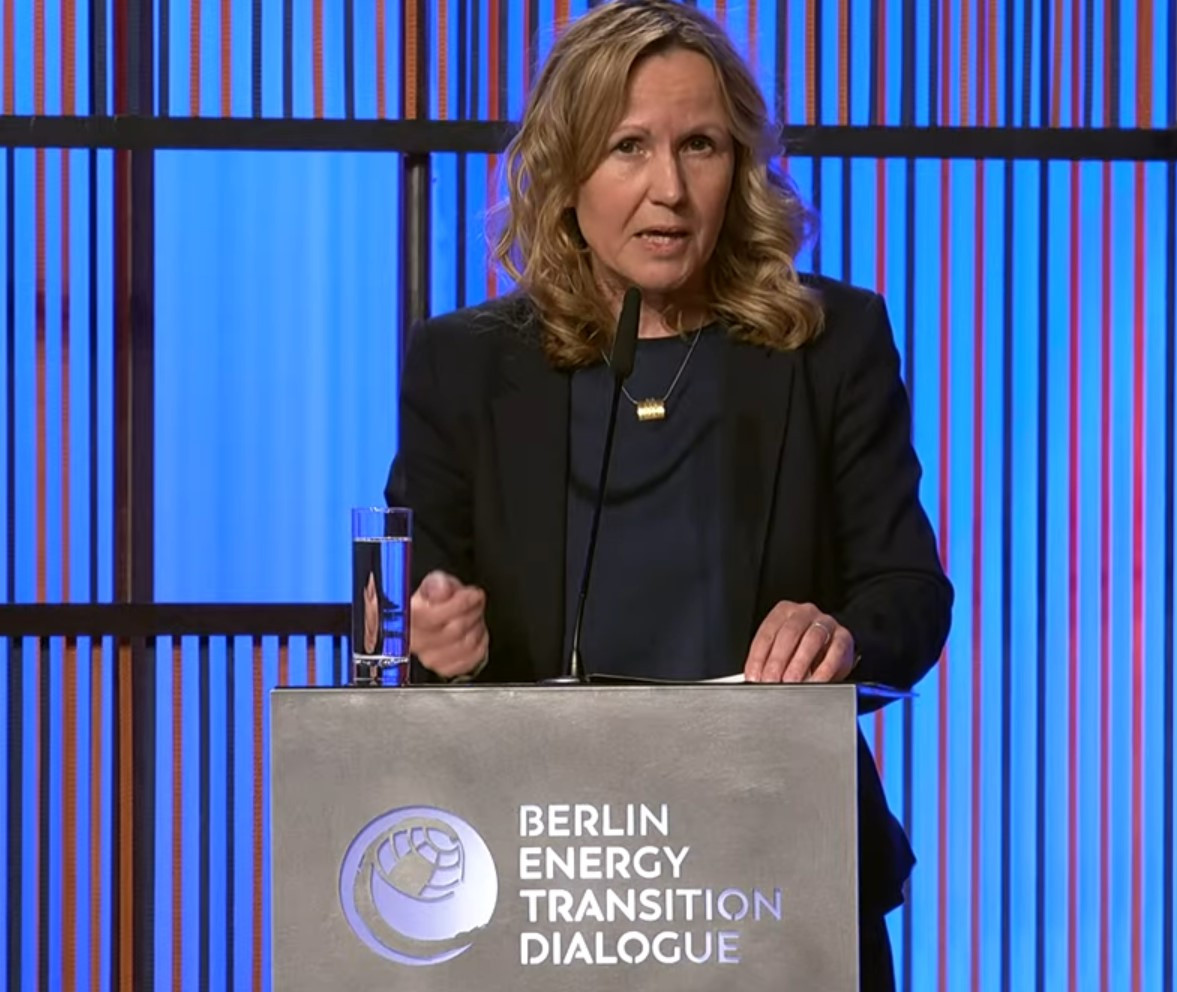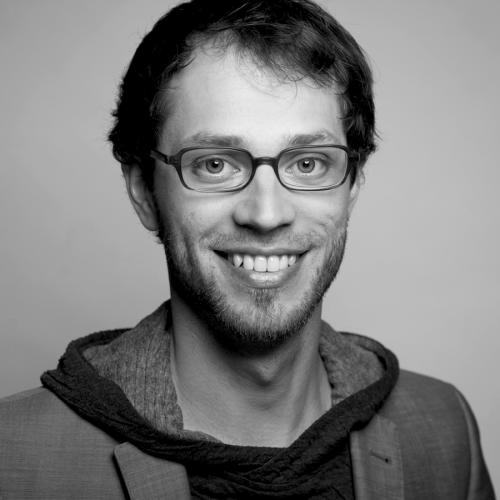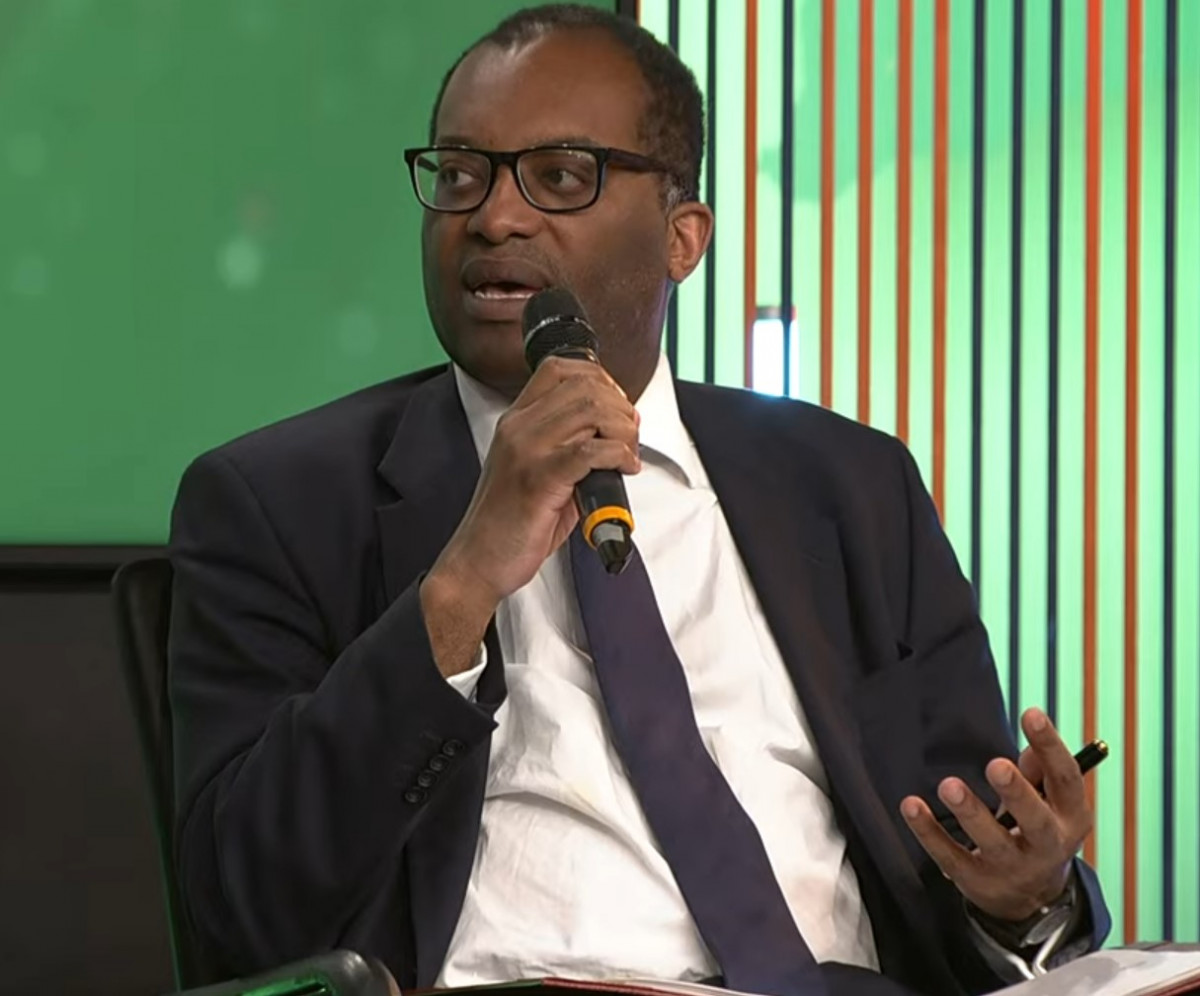BETD22: Supporting energy transition in developing nations more urgent amid war
"Don't play climate crisis and biodiversity crisis off against each other" - German environment minister
The best measures are always the ones that solve several crises at the same time, such as climate change, resource consumption and biodiversity loss, Germany’s environment minister Steffi Lemke said at the BETD. She named a massive renewables boost, a circular economy, nature and carbon sinks protection and adaptation measures as examples of how the German government was going to tackle this multitude of challenges. “With renewable energies, we have a solution, a fast solution that makes it possible to exit the use of fossil fuels,” she said. A dramatically faster expansion of renewables would be necessary, and therefore much more efficient and easy planning and approval procedures, but without losing sight of the environment and biodiversity protection. “The crisis of biodiversity is just as existential as the climate crisis, and those crises must not be played off against each other”. She announced that the economy and climate minister and herself would shortly present legislative proposals that would reconcile faster renewable installation planning and environmental protection.
“But dependencies do not only exist with a view to energy supplies, but also regarding many raw materials and within supply chains,” Lemke said, adding that roughly half of all global greenhouse gas emissions, as well as 90 percent of biodiversity loss, and water scarcity are due to raw materials extraction and processing in one way or another. She announced that the government would table a strategy for a circular economy.
U.S. deputy energy secretary “ready and eager” to partner on “three-layer crisis”
“We have a three-layered crisis right now,” says U.S. Deputy Secretary of Energy David Turk. Referencing the climate crisis, pandemic and Russia’s war on Ukraine, Turk says “we are not doing enough with enough urgency.” He says that because of the COVID 19 crisis, many countries had been hopeful that they would build back better as massive relief funds were unlocked. He hasn’t seen that change as “our emissions have come roaring back” since pre-covid times.
Turk sees overlap between the three crises and gives the example that renewable energies “can free us from volatile oil and gas markets” and from dictators. “Partnership is how we find our way out of this three-layered crisis.” Turk closed saying the U.S. stands “ready and eager” to partner with countries around the world on the current crises.
Need clear hierarchy of action to decarbonise industry – Luxembourg minister
Luxembourg energy minister Claude Turmes has said a “clear hierarchy” of action is needed in efforts to move fast on decarbonising the industry sector. Turmes put key elements in order: efficiency, renewables, direct electrification, the use of waste heat from industry, and lastly, hydrogen. “With all respect to the needs to move on green hydrogen, next year it won't be at our disposal, so we need to move fast on the other issues.” He called for a European strategy to develop a green hydrogen market.
He was countered by Kerstin Andreae, head of Germany’s energy industry association BDEW, who called for swiftly moving to ramp up hydrogen with a “holistic approach”. “We need not only electrification but also green molecules,” she said. Andreae sees a window of opportunity to forge hydrogen cooperations around the world, as many countries already have strategies which according to her are broadly aligned. For some time, blue hydrogen made from fossil gas where the CO2 is stored would be necessary, also to give companies the security they need to make the right decisions concerning their production lines, she said.
Supporting energy transition in developing nations more urgent amid war – minister
Supporting emerging economies and developing countries in decarbonising the energy sector is more urgent than ever in light of Russia’s war on Ukraine and its consequences for energy prices, said economic cooperation and development minister Svenja Schulze on day two of the Berlin Energy Transition Dialogue. “The Russian attack on Ukraine has led to rising energy prices,” said Schulze. “This will be particularly felt in developing countries that rely on energy imports and are not in a position to alleviate the negative consequences of price increases.” She called for more speed overall when it comes to climate action, even as other crises are ongoing. “If you want to prevent further disasters, destabilisation and crises, we must, despite the COVID-19 pandemic, despite war, take even faster action on climate protection in order to prevent global warming from exceeding 1.5 degrees Celsius.”
Schulze said the war starkly shows that dependence on the use of fossil fuels is “dangerous” both in the long term, and also at this moment. Thus, the world community needs to make the green energy and climate transition even faster. “The potential of renewables for emerging countries is huge,” as they improve the energy supply and boost their economies, she said. “It also strengthens their independence and energy supply security.”
Partnering with countries across the globe to help with the energy transition is one of the most important priorities of the German government, said Schulze. It does so through so-called climate and development partnerships (e.g. with Rwanda), or ‘just transition’ partnerships such as the one for South Africa which Germany presented together with the UK, the US, France, and the EU, at the 2021 UN climate conference in Glasgow.
"Shift away from fossil fuels is for energy security and, let’s not forget, to combat climate change” – UK minister
Russia’s invasion of Ukraine has “highlighted in very stark terms the need for European countries to accelerate the energy transition, and to wean themselves off Russian oil and gas,” Kwasi Kwarteng, Secretary of State for Business, Energy and Industrial Strategy of the United Kingdom said at the BETD. The UK is stepping up plans for a home-grown energy system to generate cheaper and greener energy from renewable sources, and by looking into nuclear power, will set out a new energy security strategy in the coming days, he said. Accelerating the shift away from fossil fuels “is for our energy security, and also, let's not forget this, to combat climate change,” Kwarteng added. He named investment in hydrogen production and a power interconnector that would allow for renewable power exchange to stabilise both energy sectors as common objectives of the UK and German governments. Speeking on the need for a just transition to a renewable, sustainable economy, Kwarteng said that such transitions “very often have been lop-sided, in the sense that benefits have accrued to a smaller number of people, but this transition has to be one which works for everybody”.
War must be turning point for Europe in ending Russia’s energy blackmail – Ukraine deputy minister
Russia’s war against Ukraine is an attack on the unity and future of Europe and its nations and must represent a turning point for the continent’s energy policy, said deputy energy minister of Ukraine Yaroslav Demchenkov. European countries should not veer off their “planet green course”, said the minister who was greeted with much applause from the audience. “The war and the current energy crisis should be a turning point for Europe in ending Russian’s energy blackmail and achieving global decarbonisation goals.”
Demchenkov said he is confident that the “sad and tragic” war in his country can change the current energy balance. He called on governments to:
- Destory the Russian myth Europe could not survive without Russian energy
- Stop financial flows to Russia
- Review plans for use of gas as transitional fuel (take energy security into account)
- Invest in balancing capacity, including storages, to enable more use of renewables
Germany’s special envoy for international climate action Jennifer Morgan said the gap from Russian supplies should not be filled with the same amount of fossil fuels from other sources. “We need to remove dependence on Russia, but we also have to make sure not to lock in fossil fuel infrastructure from other countries, which would make reaching the target of 1.5°C impossible,” she said.
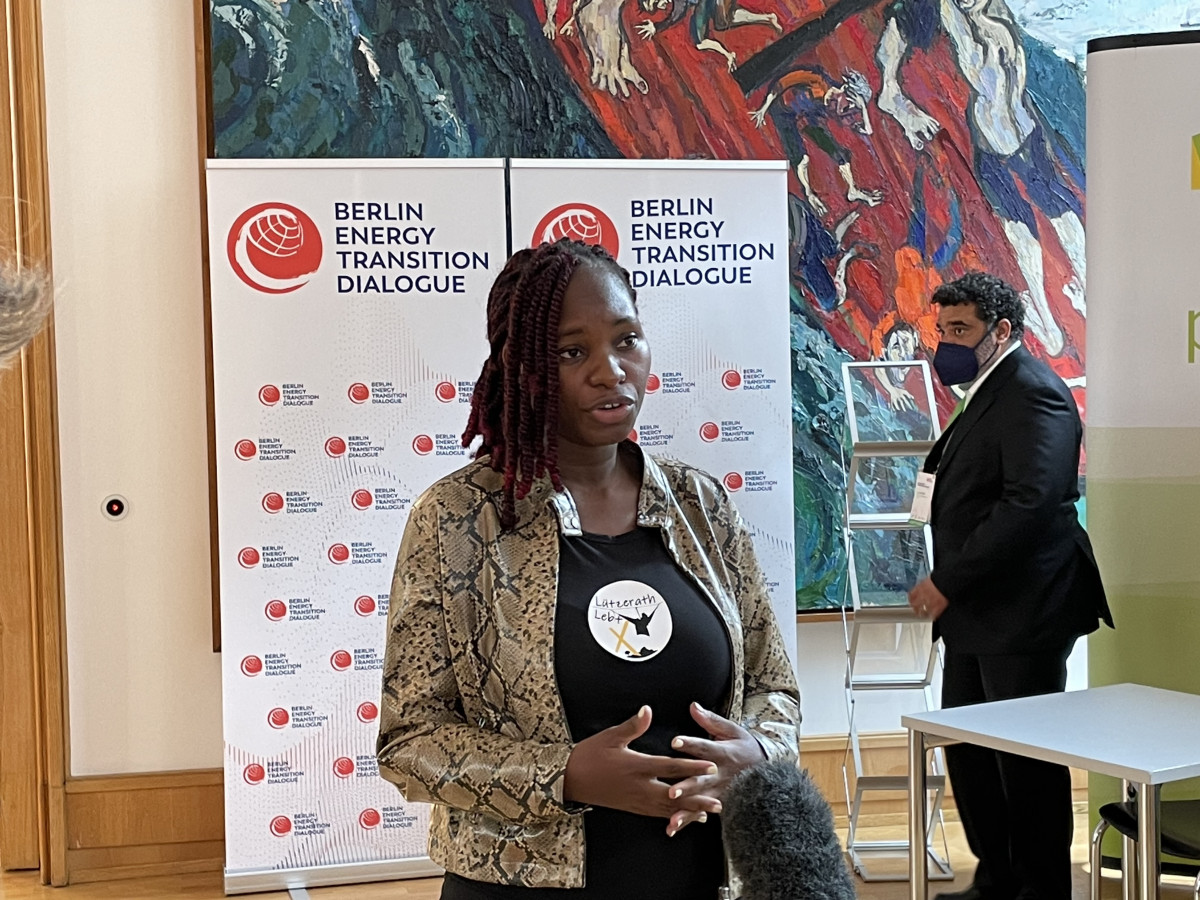
Youth keynote activists criticize energy developments without local consent
Calling in to BETD from her community in Ecuador, Indigenous Rights and Climate Advocate Helena Gualinga criticized energy companies and their lack of respect for indigenous land use consent. Gualinga describes her subsistent community in the Amazon and how logging and oil companies are threatening their way of life. “All of this has been done to us in the name of development,” says Gualinga. “What does development mean and who is this for? It is not for indigenous communities.” She says that free, prior and informed consent does not exist with these energy company developments.
Fridays for Future Uganda founder and organizer Hilda Nakabuye calls for German bank divestment in French energy company Total, who plans to build the East African Crude Oil Pipeline (EACOP) across Uganda including biodiverse natural parkland. “I have come here today because the greed exhibited by your leaders and the global north is a danger to the people in Africa.” She says the pipeline is a danger to wildlife and a threat to future generations. “Europe developed by burning fossil fuels, but that is not the path we want to take.” She said development should not come at the expense of nature.
Governments must avoid barriers to climate action from steps to ease energy crunch – IEA
Governments should avoid that the steps they take to tackle the energy crisis caused by Russia’s war against Ukraine create fresh barriers to reach the global climate goals, the head of the International Energy Agency (IEA), Fatih Birol said. The current crisis amounted to the first global energy crisis and energy security was set to remain the critical issue for months if not years to come. Despite the crisis governments had to ensure that more capital for clean energy and other energy transition investments flowed to developing countries. The current crisis also highlighted the risks from any dependence on individual countries. “Today when it comes to energy security it is Russia and natural gas, tomorrow it is lithium and another country,” Birol said, that currently only three countries supplied 75 percent of the three most critical resources for the energy transition technologies.
Energy transition can and must happen faster in light of war - minister
Russia’s war against the Ukraine has increased the pressure on Germany and Europe to speed up their energy transition as a way to not only fight climate change, but also lessen dependence on Russian energy, said economy and climate minister Robert Habeck (Green Party). “We can do what we had to do anyway to combat the great structural crisis of our time, namely galloping global warming [...], we can now do it much more quickly under great pressure and against a tragic backdrop,” said Habeck. “And we must do so.” With the right energy policy, countries could create a climate-neutral society, increase the prosperity of nations and promote peace in the world. “You cannot steal the wind, the sun belongs to no one,“ he said.
Habeck said that despite the burdens Germany would have to carry from switching away from Russian supply, it is still a rich country and should not act at the detriment of others in the world. “It is not hard to see that other countries that may not have such a stable and rich economy will have much greater difficulties bearing this burden.”
The minister did not mince his words on mistakes made by past governments who had bet too much on Russian energy. “We should have known that it is not only stupid to bet all your political cards on one country, but also that it was not a smart idea to bet on this country.” In retrospect it was “difficult to understand” why Germany allowed a dependence on Russian imports of about 50 percent, “because key decisions were made after Russia occupied Crimea. Nevertheless, we still counted on Nord Stream 2.”
Ukraine war shows climate action and energy transition concern security interests and geopolitics – foreign min
The war against Ukraine and the resulting energy crisis show that energy and climate policy are key issues of geopolitics, said foreign minister Annalena Baerbock. “Climate change mitigation and the energy transition are not only about future of our planet, our families and children, but also about concrete security interests and geopolitics in the 21st century,” she said. “We are witnessing this in the most brutal way.” She called on governments to jointly tackle the crises, which was also what the new German climate foreign policy was about. Developed countries must finally come up with the promised 100 billion US Dollars annually in climate finance for poorer states. “We will not be able to turn back the climate crisis, but we can do everything we can to limit climate damage together,” she said.
Baerbock said the brutal war on Ukraine started by Russian President Vladimir Putin shows Germany and Europe have to become fully independent from Russian fossil fuel imports. While her government had issues with an immediate and full embargo, it was currently working on “a national gradual embargo, above all an oil embargo” with its efforts to lessen dependence on Russia.
Economist calls for more active governments
Governments need to take a new, more holistic approach to economic policy to drive climate action and the energy transition, economist Mariana Mazzucato said. “To get from ambition to action, we have to stop being reactive,” said the professor in the economics of innovation and public value at University College London. “We have to produce, distribute differently.” Governments should not just correct market failures but take new approaches that ensured a value-driven stakeholder economy. Mazzucato called for a different governance of public goods, including innovation processes, which are key to effective climate action.

